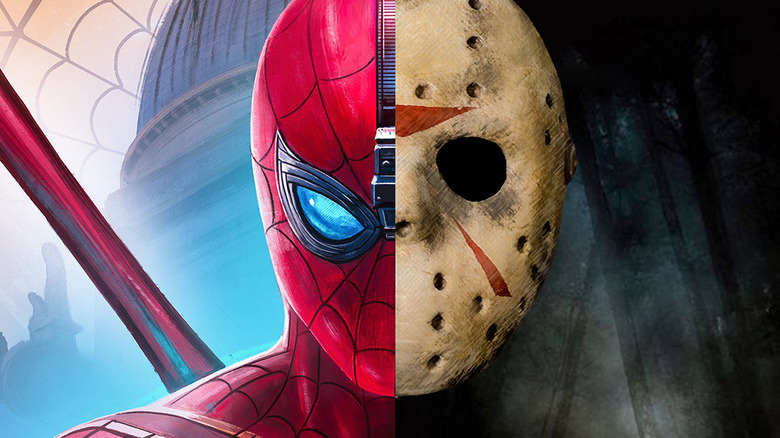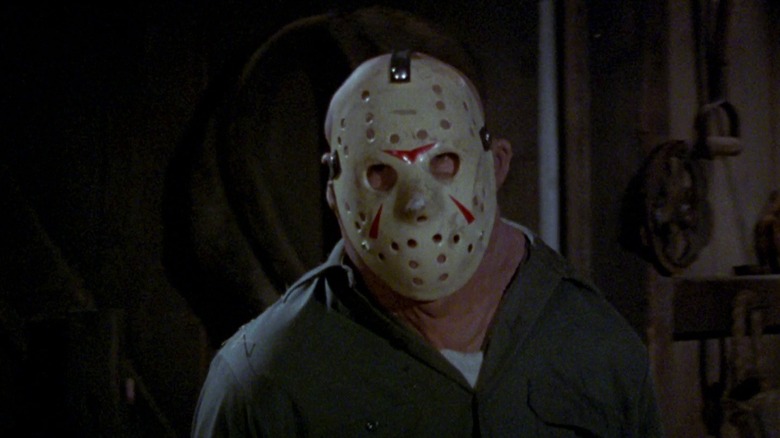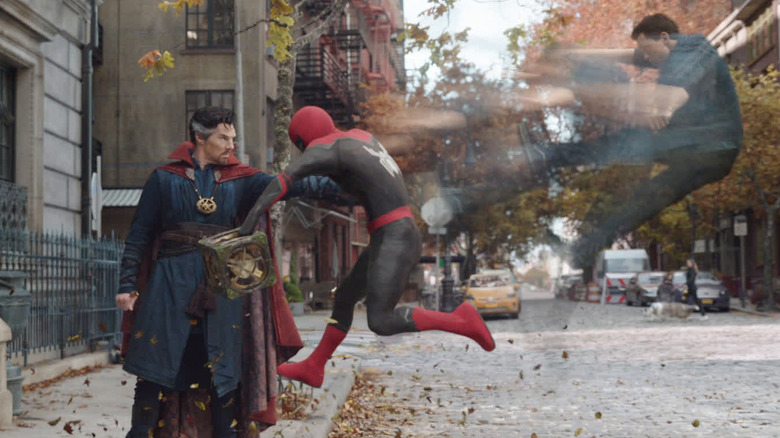Friday The 13th Lawsuit Verdict Could Have Huge Ramifications For Marvel And Beyond
Horror fans have a glimmer of hope, albeit with many caveats, that a new "Friday the 13th" movie could finally be on the horizon. Screenwriter Victor Miller has just scored a huge victory in court, after years of battling it out for the rights to the iconic horror franchise. We'll get into the nitty-gritty of it all in a moment but, as it stands, Miller is now poised to regain the rights to the franchise, at least in the U.S., in the not-too-distant future.
As reported by The Hollywood Reporter (via Bloody Disgusting), the 2nd Circuit Court of Appeals has ruled in favor of Miller. They have concluded that he was not an independent contractor when he wrote the original 1980 slasher classic, and therefore he is entitled to authorship rights. As such, the copyright termination Miller filed is seen as valid in the eyes of the law, and the rights to "Friday the 13th" will revert back to him. However, this only applies to the U.S. and only pertains to the original movie. Which, in the case of "Friday the 13th," complicates matters. Reporter Eriq Gardner shared the ruling on Twitter, which you can check out below.
JUST IN: “Friday the 13th†screenwriter wins copyright termination appeal against producer. Full story to come. Here’s background: https://t.co/ujT1NAqqGo pic.twitter.com/b7eQstMToX
— Eriq Gardner (@eriqgardner) September 30, 2021
This will have major implications for Hollywood, as other writers are currently attempting to get the rights back to their IP. Specifically, Marvel is currently fighting to keep the rights to some of its biggest characters. And this decision may set a precedent for other cases to follow.
The Story So Far
Back in 2016, Miller filed a copyright termination to regain the rights to "Friday the 13th," as he penned the screenplay for the original horror hit that spawned a massive franchise and, eventually, made Jason Voorhees an icon of the genre. U.S. copyright law allows authors to reclaim the rights to what they created after a set number of years. In 2018, a federal judge ruled in Miller's favor. Director Sean S. Cunningham and Horror Inc. tried to argue that Miller wrote the screenplay under what is known as work-for-hire, meaning he had no claim to the underlying IP. Ultimately, the powers that be ruled in Miller's favor in 2018, and now a higher court has upheld that.
This is why we haven't seen a new entry in the franchise since the 2009 "Friday the 13th" remake. And, given how well movies like 2018's "Halloween" have done at the box office, you'd best believe Hollywood would already be on it, if it were possible. This ruling makes a sequel or reboot conceivable, albeit some time down the line as much still needs to be ironed out. Miller has to actually get the rights back, and then deals would need to be made..
Also, copyright — especially as it pertains to this franchise – is excruciatingly complicated. As fans know, Jason didn't truly become the killer until the sequels started rolling out. In the original it's his mother, Pamala Voorhees, who is slaughtering the teens of Camp Crystal Lake. Yes, Jason shows up at the very end, but not in his machete-wielding, hockey mask-wearing glory. So, Miller may not be able to use the single most recognizable element of the franchise. It's messy.
What This Means for Other Franchises, Such as the MCU
Other writers have the right to exercise copyright termination as well, and the rights for many beloved franchises are at stake here. Clive Barker already successfully regained the rights to "Hellraiser," and Wes Craven's estate has the rights to "A Nightmare on Elm Street." Most importantly, Marvel is fighting off several such copyright termination claims from the estates of creators like Steve Ditko and Stan Lee. At the center of these legal battles are "Doctor Strange," "Spider-Man," "Thor," and other massive franchises. As such, the eyes of rightsholders in Hollywood are watching this situation closely — and now there is a precedent set in favor of the creators.


